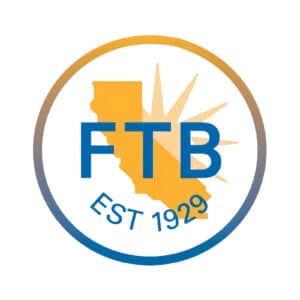 The Franchise Tax Board of California (FTB) is like any taxing entity in that it ensures taxpayers compliance through the use of audits. An FTB audit is a formal inspection of your books and records in connection with your personal or business tax returns. The purpose of an audit is to ensure that you as the taxpayer are accurately reporting any income received and any expenses incurred during the tax year in question.
The Franchise Tax Board of California (FTB) is like any taxing entity in that it ensures taxpayers compliance through the use of audits. An FTB audit is a formal inspection of your books and records in connection with your personal or business tax returns. The purpose of an audit is to ensure that you as the taxpayer are accurately reporting any income received and any expenses incurred during the tax year in question.
Starting of Audit:
Two common ways that the Franchise Tax Board can perform their audits are 1) “Piggy Backing” onto an Internal Revenue Service (IRS) audit that has already been completed or 2) the FTB can initiate the audit of your return(s) themselves.
“Piggy Backing” with an IRS Audit: When the IRS has completed an IRS audit of your tax return the FTB almost always makes proposed changes that are generally in line with what the IRS auditor has done. If you are going to or have been audited by the California Franchise Tax Board, it’s almost always a guarantee that the IRS will report these changes to the FTB, whom will then in turn send you a Proposed Notice of Assessment and a bill.
FTB Initiated Audit: Another way the FTB can pursue an audit is to do so on their own. Generally, the FTB will conduct its audits on common tax mistakes on California specific income tax law as well as general income tax law.
For example: For an individual top tax audit issues are verification of Head of Household status, Bad debt deductions, 1031 exchanges, sourcing of income and residency determination, gambling losses, as well as personal residence issues.
For example: For businesses, top tax audit issues include employee stock ownership plans, prior net operating losses or real estate professional deductions.
Your Rights during an Audit: You have a right to obtain representation during an audit such as hiring a tax attorney, or a CPA to represent you. The state officials handling the audit can only ask you to provide reasonable and relevant information to verify the selected items on your tax return. You have a right to have your auditor answer questions about your audit and if you have been unable to receive adequate help, you may request to speak with an audit supervisor or program manager. Although many taxpayers handle audits themselves, they can find themselves in trouble if it is not handled correctly.
What to Expect at the End of your Audit: At the end of your audit, the FTB will issue a Notice of Proposed Assessment, which is the FTB’s version of an exam change. The Notice of Proposed Assessment indicates that the FTB changed your return and that you may owe additional taxes, interest and penalties. If you do not agree with the changes, you have a right to protest this action by filing a written protest within date shown on your Notice of Proposed Assessment.
______________________________________________________________________
Please keep in mind the information and advice presented in this blog is not intended to be used as formal legal advice. Contact a tax professional for personalized tax advice pertaining to your specific situation. While we try and answer all parts of the question when we write our blogs, sometimes there may be some left unanswered. If you have any questions about your problems with the IRS, SBOE, FTB, or BOE, or tax law in general, call RJS Law at (619) 595-1655.

Leave a Reply